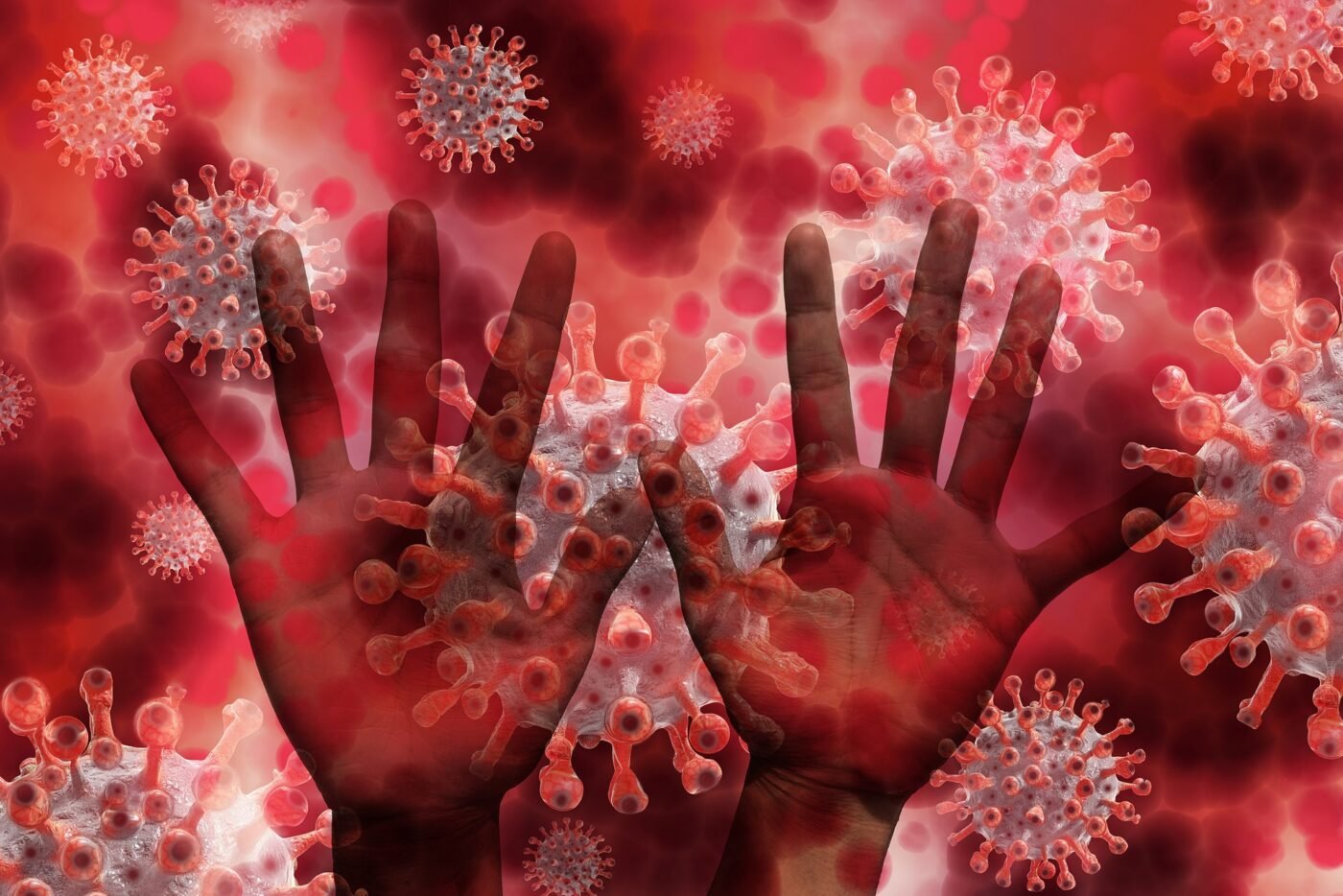Recover from Human Metapneumovirus:

Human Metapneumovirus (hMPV) is a respiratory virus that can cause symptoms similar to the common cold, but it can also lead to more severe respiratory issues, especially in young children, the elderly, and individuals with weakened immune systems. If you or a loved one has been diagnosed with human metapneumovirus, you may be wondering: How long does it take to recover from human metapneumovirus?
Human metapneumovirus is a virus that affects the respiratory system, typically causing cold-like symptoms such as a runny nose, cough, and sore throat. However, in some cases, it can lead to more severe conditions like bronchiolitis, pneumonia, or acute respiratory distress.
It is most commonly transmitted through respiratory droplets from coughing or sneezing, and while it can affect people of all ages, young children and older adults are more susceptible to complications.
Common Symptoms of Human Metapneumovirus:
Before diving into the recovery timeline, it’s important to understand the symptoms of human metapneumovirus. Symptoms can range from mild to severe, and they typically appear 3 to 6 days after exposure to the virus. Common symptoms include:
- Cough
- Runny nose
- Sore throat
- Fever
- Shortness of breath
- Fatigue
- Nasal congestion
- Wheezing
In children and those with compromised immune systems, the infection may cause more severe symptoms, including difficulty breathing and wheezing, which can require medical intervention.
- Severe Symptoms to Watch For:
- Difficulty breathing or rapid breathing
- Persistent high fever (over 102°F or 39°C)
- Chest pain or tightness
- Bluish lips or face (indicating oxygen deprivation)
- Extreme fatigue or lethargy
- Worsening symptoms, especially after a few days
If you or someone you know experiences these severe symptoms, it’s important to seek medical care immediately.
How Long Does It Take to Recover from Human Metapneumovirus?
The recovery time for human metapneumovirus can vary depending on several factors, such as the severity of the infection, the person’s age, and their overall health. However, in general:
Mild Cases: In healthy individuals, recovery from human metapneumovirus typically takes about 7 to 10 days. During this period, symptoms may gradually improve, and individuals can manage mild discomfort with over-the-counter medications for fever and pain.
Moderate to Severe Cases: For those who develop more severe symptoms, such as pneumonia or bronchiolitis, recovery may take 2 to 3 weeks or longer. These cases may require medical intervention, including hospitalization, and may involve treatments like oxygen therapy or medications to help manage symptoms.
High-Risk Groups: Children, elderly individuals, and people with weakened immune systems may experience a longer recovery period. In some cases, they may require more intensive care and monitoring, with recovery times extending beyond three weeks.
Treatment and Management of Human Metapneumovirus:
Currently, there is no specific antiviral treatment for human metapneumovirus. Treatment focuses on relieving symptoms and supporting the immune system in fighting the infection. Here are some common management strategies:
Rest: Adequate rest is crucial for recovery, as it allows the immune system to fight the virus more effectively.
Hydration: Staying hydrated helps thin mucus and makes it easier to breathe, reducing the severity of symptoms like congestion.
Over-the-Counter Medications: Pain relievers like acetaminophen or ibuprofen can help reduce fever and ease body aches. Nasal decongestants or saline sprays may also help relieve congestion.
Hospitalization: In severe cases, particularly for infants, elderly individuals, or people with compromised immune systems, hospitalization may be required. This could include oxygen therapy, intravenous fluids, or respiratory support.
1. Symptomatic Relief:
Rest: Rest is essential for recovery. It allows your body to direct energy towards fighting the infection.
Hydration: Drink plenty of fluids to stay hydrated. This helps thin mucus and reduces the severity of symptoms like nasal congestion and sore throat.
Over-the-counter medications: Pain relievers such as acetaminophen or ibuprofen can help reduce fever and alleviate body aches. Decongestants or saline nasal sprays may help relieve nasal congestion.
Cough Suppressants: For a persistent cough, cough suppressants or expectorants may help ease symptoms. However, consult a healthcare provider before taking any medications.
2. Medical Care:
For more severe cases, particularly in infants and elderly individuals, hospitalization may be necessary. Treatment may include:
Oxygen therapy: To help with breathing difficulties.
IV fluids: If dehydration is a concern.
Ventilator support: In extreme cases of respiratory distress.
3. Preventive Measures:
While there is no vaccine for human metapneumovirus, you can take steps to reduce the risk of contracting or spreading the virus:
Wash your hands frequently with soap and water, especially after coughing or sneezing.
Cover your mouth and nose with a tissue or elbow when coughing or sneezing.
Avoid close contact with infected individuals.
Disinfect surfaces regularly, particularly during cold and flu season.
Can You Prevent Human Metapneumovirus?
While there is no vaccine for human metapneumovirus, there are several steps you can take to reduce the risk of infection:
Wash Hands Frequently: Regular handwashing can help prevent the spread of respiratory viruses.
Cover Your Mouth and Nose: When coughing or sneezing, cover your mouth and nose with a tissue or your elbow to prevent spreading the virus to others.
Avoid Close Contact: Stay away from people who are sick, and avoid sharing drinks or utensils.
Disinfect Surfaces: Frequently clean and disinfect common surfaces, especially during cold and flu season.
When to Seek Medical Help:
While most cases of human metapneumovirus resolve on their own, you should seek medical attention if you experience any of the following:
- Difficulty breathing
- Persistent high fever
- Severe fatigue or weakness
- Chest pain or tightness
- Worsening symptoms after the first few days
Conclusion:
Recovery from human metapneumovirus typically takes anywhere from 7 days to 3 weeks, depending on the severity of the infection and the individual’s health. While the infection is often mild in healthy individuals, it can cause serious complications in high-risk groups. Early diagnosis and proper management are key to reducing the duration of symptoms and preventing complications.
When Should You Seek Medical Help?
In most cases, human metapneumovirus will resolve on its own with supportive care. However, you should seek medical attention if you experience:
Difficulty breathing or shortness of breath
Persistent high fever (above 102°F or 39°C)
Chest pain or tightness
Severe fatigue or confusion
Worsening symptoms after the first few days of illness



Leave a Comment